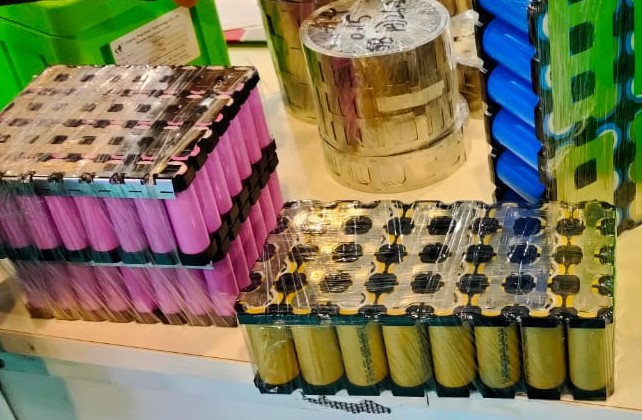Confirming earlier media reports, four companies namely, Ola Electric Mobility, Hyundai Global Motors, Reliance New Energy Solar, and Rajesh Exports are selected for incentive under Production Linked Incentive (PLI) Scheme for Advanced Chemistry Cell (ACC) Battery Storage. Union Ministry of Heavy Industries (MHI) has just released an official statement in this regard, stating that an allotment of 50 GWh of battery capacity in total has been made to these four bidders under the scheme.
Accordingly, the companies have to set up their manufacturing facilities within a period of two years. Incentives, under the ₹ 18,100 crore flagship programme to kick-start cell-level battery manufacturing in India, are to be disbursed on sale of batteries manufactured in India with emphasis on greater domestic value addition, as per the official statement from the ministry.
Commenting on the ACC PLI scheme, Union Minister for Heavy Industries Dr Mahendra Nath Pandey said, "Today, the increase in demand for EVs due to a favourable regulatory framework, has mainly attracted investment in this sector. Big companies are investing in EV manufacturing in India, and are interested to join us. We should give them more encouragement and keep trying to make India a manufacturing hub".
He added that growth in the domestic EV industry will help achieve India's 'Panchamrit' commitments at COP 26 summit, while also boosting employment opportunities in the country. The ministry expects a direct investment of about ₹ 45,000 crore into advanced chemistry battery storage manufacturing in India.
MHI has clarified that of the 10 bids it had received in October last year, 9 companies met the required eligibility conditions under the RFP guidelines. Accordingly, the financial bids for the qualified bidders were opened on March 17, 2022 after announcement of the results of technical evaluation under transparent global tender process of RFP.
Final evaluation of the selected bidders was carried out as per 'Quality and Cost Based Selection' (QCBS) mechanism, wherein bidders were ranked on the basis of their combined technical and financial score. The ACC capacities have been allocated in order of their rank for a cumulative capacity of 50 GWh per year, according to the ministry.
Ola Electric Mobility and Hyundai Global Motors have been awarded their quoted capacities of 20 GWh each, while Reliance New Energy Solar and Rajesh Exports are allocated 5 GWh each. It is to be noted that the remaining 15 GWh quoted by the Reliance New Energy Solar has been put under waiting list, along with the bids of 5 other companies who did not qualify the allotment for this year.
Expressing his excitement on the developments, Dr Rahul Walawalkar, President of India Energy Storage Alliance (IESA) said, "This is just the beginning of a journey; so far India was importing cells and assembling battery packs. Now, we are starting to make the dream of 'making in India' a reality. The next two years will go in the hard work, and will be a challenging and exciting time to prove 'we can do it' in India".
He added that with the ACC PLI scheme, India is embarking its first step to become a global hub for R&D and manufacturing of advanced energy storage technologies. "It is great to see that not just the 4 ACC PLI winners, but additional 5+ groups are planning to go ahead with investments in giga factories in India in next 2-3 years".
"The next couple years are critical for India to focus on technology partnerships, skill development, and capacity building to support the giga-factories and its entire supply chain", he said. To enable such end-to-end developments in the sector, IESA had previously launched 'India Battery Supply Chain Council' back in December 2021.
The industry alliance has also set a roadmap for India to have at least 25 GWh of manufacturing capabilities by 2025, 70+ GWh by 2027, and surpass 100 GWh by 2030. It is also eagerly anticipating the additional 20+ bids for the Niche ACC PLI, where an additional 5 GWh manufacturing capacity of next-generation battery technologies will commence in India.
Read More

